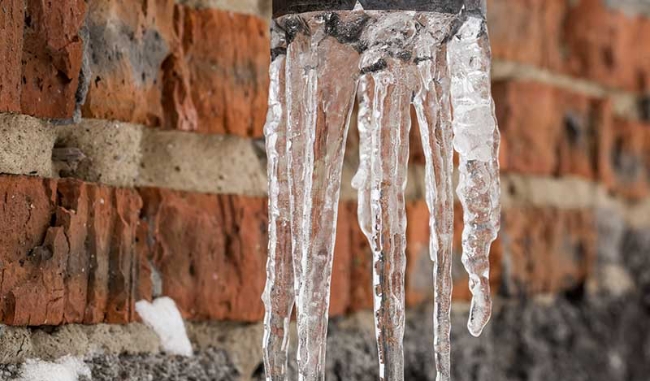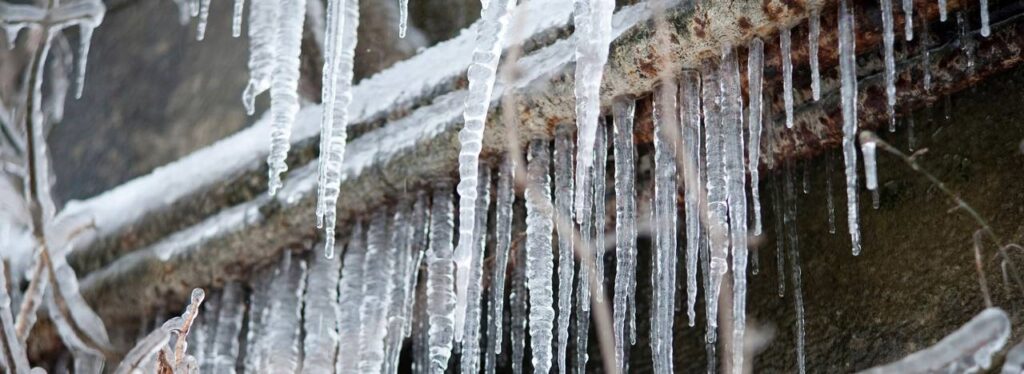Just about every person seems to have their unique idea when it comes to How to Prevent Your Pipes From Freezing.

Cold weather can damage your plumbing, especially by freezing pipes. Right here's how to prevent it from taking place and what to do if it does.
Introduction
As temperatures drop, the danger of frozen pipelines increases, possibly causing pricey repair work and water damages. Understanding exactly how to stop frozen pipes is important for house owners in chilly environments.
Understanding Icy Pipelines
What causes pipes to freeze?
Pipes ice up when exposed to temperature levels listed below 32 ° F (0 ° C) for prolonged periods. As water inside the pipelines freezes, it broadens, taxing the pipe wall surfaces and potentially causing them to burst.
Risks and problems
Icy pipelines can result in supply of water disruptions, building damages, and expensive repair work. Burst pipes can flooding homes and create comprehensive structural damages.
Indicators of Frozen Pipes
Identifying frozen pipelines early can prevent them from breaking.
Exactly how to identify icy pipelines
Look for lowered water circulation from faucets, uncommon odors or noises from pipelines, and visible frost on subjected pipes.
Avoidance Tips
Insulating prone pipelines
Wrap pipes in insulation sleeves or use heat tape to protect them from freezing temperatures. Focus on pipes in unheated or outside locations of the home.
Home heating strategies
Maintain interior spaces sufficiently heated, especially locations with plumbing. Open closet doors to permit cozy air to flow around pipes under sinks.
Protecting Outdoor Pipes
Yard hoses and outdoor faucets
Disconnect and drain pipes yard hoses before wintertime. Set up frost-proof spigots or cover outside faucets with shielded caps.
What to Do If Your Pipes Freeze
Immediate activities to take
If you suspect icy pipes, maintain faucets available to soothe pressure as the ice melts. Utilize a hairdryer or towels taken in warm water to thaw pipelines gradually.
Long-Term Solutions
Architectural changes
Consider rerouting pipes far from outside walls or unheated locations. Include added insulation to attics, basements, and crawl spaces.
Updating insulation
Invest in high-quality insulation for pipes, attic rooms, and wall surfaces. Appropriate insulation helps preserve consistent temperature levels and lowers the risk of frozen pipelines.
Final thought
Protecting against frozen pipelines calls for positive procedures and fast reactions. By comprehending the causes, indications, and safety nets, homeowners can safeguard their pipes during cold weather.
Helpful Tips to Prevent Frozen Pipes this Winter
UNDERSTANDING THE BASICS: WHY PIPES FREEZE AND WHY IT’S A PROBLEM
Water freezing inside pipes is common during the winter months, but understanding why pipes freeze, and the potential problems it can cause is crucial in preventing such incidents. This section will delve into the basics of why pipes freeze and the associated problems that may arise.
THE SCIENCE BEHIND FROZEN PIPES
When water reaches freezing temperatures, it undergoes a physical transformation and solidifies into ice. This expansion of water as it freezes is the primary reason pipes can burst. As the water inside the pipe freezes, it expands, creating immense pressure on the walls. If the pressure becomes too great, the pipe can crack or rupture, leading to leaks and water damage.
FACTORS THAT CONTRIBUTE TO PIPE FREEZING
Low Temperatures: Extremely cold weather, especially below freezing, increases the risk of pipes freezing. Uninsulated or Poorly Insulated Pipes: Pipes located in unheated areas, such as basements, crawl spaces, or attics, are more prone to freezing. Insufficient insulation or lack of insulation altogether exacerbates the problem. Exterior Wall Exposure: Pipes running along exterior walls are susceptible to freezing as they encounter colder temperatures outside. Lack of Heating or Temperature Regulation: Inadequate heating or inconsistent temperature control in your home can contribute to frozen pipes. PROBLEMS CAUSED BY FROZEN PIPES
- Pipe Bursting: As mentioned earlier, the expansion of water as it freezes can cause pipes to burst, resulting in significant water damage.
- Water Damage: When pipes burst, it can lead to flooding and water damage to your property, including walls, ceilings, flooring, and personal belongings.
- Structural Damage: Prolonged exposure to water from burst pipes can compromise the structural integrity of your home, leading to costly repairs.
- Mold and Mildew Growth: Excess moisture from water damage can create a favorable environment for mold and mildew growth, posing health risks to occupants.
- Disrupted Water Supply: Frozen pipes can also result in a complete or partial loss of water supply until the issue is resolved.
WHY CERTAIN PIPES ARE MORE PRONE TO FREEZING
- Location: Pipes located in unheated or poorly insulated areas, such as basements, crawl spaces, attics, or exterior walls, are at higher risk of freezing.
- Exterior Pipes: Outdoor pipes, such as those used for irrigation or exposed plumbing, are particularly vulnerable to freezing as they are directly exposed to the elements.
- Supply Lines: Pipes that carry water from the main water supply into your home, including the main water line, are critical to protect as freezing in these lines can affect your entire plumbing system.
- Underground Pipes: Pipes buried underground, such as those connected to sprinkler systems or outdoor faucets, can be susceptible to freezing if not properly insulated.
https://busybusy.com/blog/helpful-tips-to-prevent-frozen-pipes-this-winter/

I'm just very fascinated with Helpful Tips to Prevent Frozen Pipes this Winter and I'm hoping you enjoyed reading my blog post. For those who enjoyed reading our blog posting plz make sure you remember to share it. Thanks for being here. Kindly come by our website back soon.
Click Here